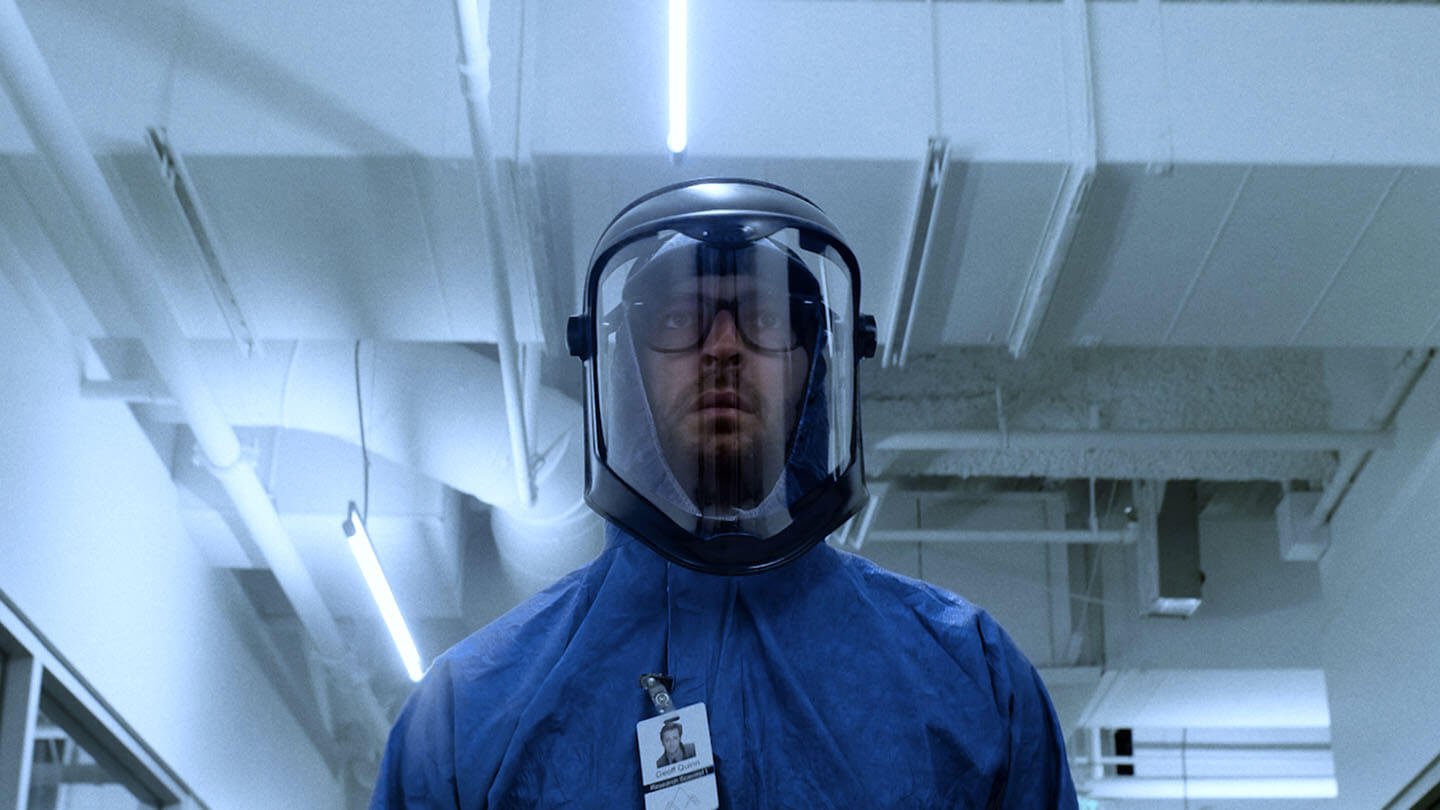Writer-director Barak Shpiez’s 12:35-minute-long Vax manages to create the same suspense and brooding urgency that feature-length films on medical-conspiracy-thrillers do. Peppered with limited dialogues, blue-red hues for the film’s colour palette and cinematography that brings to screen the helpless, stifling sensation of its characters, Vax is a success through and through.
TK Kellman narrates the news. It’s March 13th, 2003 and what might seem a normal Thursday for half the world, except the African subcontinent that endures 90% of the near-million deaths caused by Malaria from around the world every year. Its victims—mostly children under 5. What the world needs more desperately is a vaccine to end the predicament and not allies for Bush’s proposal to invade Iraq. Cut to Geoff, a medical researcher working on Sample 26-1-13. Cinematographer Caleb Phillips’s lensing captures the laboratory in a fitting manner, representing both the hope and isolation of the structure. A good use of mid-angle shots convey the essence of the scenes while leaving enough to notice the missing. And, as Cade Carradine ably brings forth the grave-looking Geoff to life, we realise from the composition alone (very efficiently done by Barak Shpiez), that this isn’t the world we were hoping for.
There is a sense of morbidity that comes with medical thrillers that’s hard to put a finger to. What draws us as an audience to this genre? What part of impending doom appeals to us? Are we seeking hope? Redemption? Or validation? Because deep down we already know that capitalism rules above all—even human life? As Geoff comes to the happy conclusion that what they have at hand, in their very own lab, is the vaccine for malaria, he can’t make the calls without the blessing of his superior, Eric played by Ricco Ross. Ross is a towering personality. Doesn’t matter what camera work you use on him, he has the personality of a commanding authority. And, he convincingly pulls off Eric as the management head/senior researcher you don’t want to mess with.
Vax explores the greed, manipulation and control that pharmacies have over policy-making, research-funding, why, even life itself. Upon realising that what they have at hand is a potential goldmine, Eric makes calls to his superior for clarity. By now, we become one with Marguerite Wheatley who plays Rachel, Geoff’s wife. Passive, attentive, morally upright, she becomes the voice the audience doesn’t have. As Geoff goes about discussing his moral ambiguity with his wife, Eric continues his conversation with the invisible boss and we are left with a few suspenseful moments as both men come to a decisive conclusion.
Will they? Won’t they? The questions keep playing on loop until the very last scene. Ace Iber Punc’s editing maintains the pace of the narrative while giving it its nail-biting finish. Shpiez has perhaps outdone himself; for be it the writing, directing or composing, the filmmaking in its entirety works in favour of Vax. Not only does it succeed in creating the suspenseful thrill, but also raise poignant questions, leaving the audience with enough to ponder about.
What could be more valuable than human life? While we all know the answer to that, Shpiez compels us to dig deeper, probe harder and he ensures that the next time news is relayed on our screens, we take it with a healthy dose of vaccine—one of reality.
Watch Vax Short Film Trailer
Vax: A Medical Drama That Makes You Re-examine The Pharmaceutical Industry
-
Direction
-
Cinematography
-
Screenplay
-
Editing
-
Music
